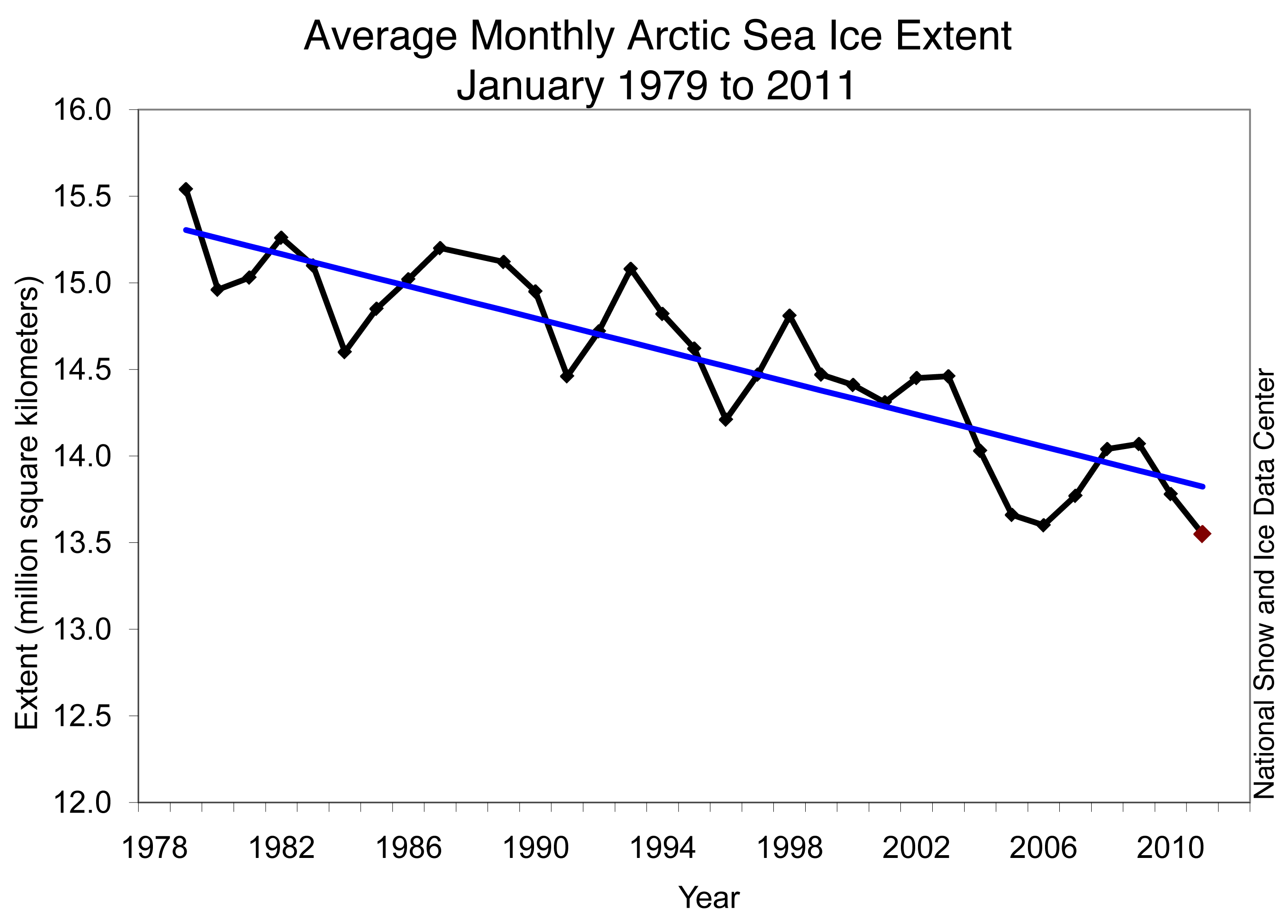This chart shows monthly January ice extent for 1979 to 2011 declining 3.3% per decade.
 |
Whilst the records broken this winter are supposed to be for cold weather, the US National Snow and Ice Data Center reports:
January 2011 had the lowest ice extent for the month since the beginning of satellite records.
Why? Because although it’s been coolish in Europe and parts of the United States, it’s been very mild in the Arctic, especially northern Canada.
Hudson Bay (at the top of Canada) did not completely freeze up until mid-January, about a month later than normal, according to Canadian Ice Service analyses. The Labrador Sea region is still largely free of ice, except in protected bays along the coast. Normally at this time of year, ice extends several hundred kilometers from the coast all the way to northern Nova Scotia.
Absence of ice both feeds and is fed by the warmth. Open water is very dark and absorbs the Sun's radiation, thus warming more. Ice reflects the radiation.
Source: Climate Progress, an American climate blog which I have been recommended. For an alternative graphic showing the same data click here.
No comments:
Post a Comment